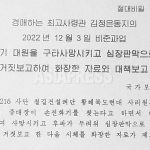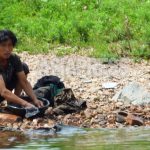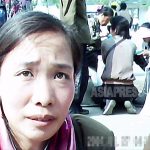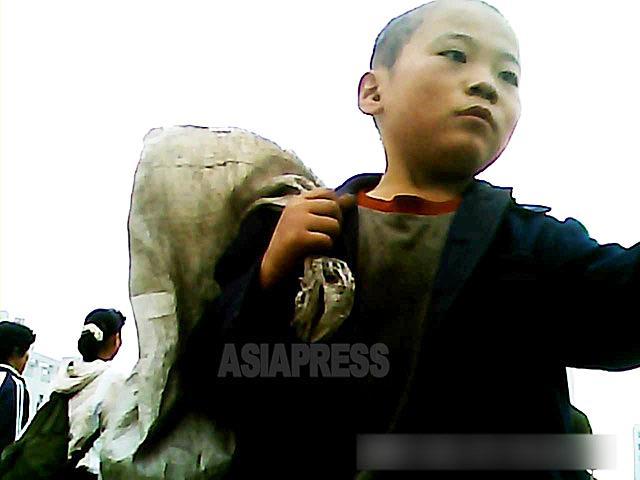
North Korea’s agricultural areas are now in the midst of the “barley hump,” an annual period of food shortages. During this period, all of the food harvested during the autumn of the previous year has been consumed, and the country must wait until the corn harvest in September to replenish its food stores. It is the single most challenging period for farmers in North Korea. In the DPRK’s cities, the impact of the “barley hump” can be felt through the rise in market food prices, but this year is different. In provincial cities, people are experiencing a severe shortage of food. Even in Musan County, an area of North Hamgyung Province that is home to North Korea’s largest iron mine, the humanitarian crisis is acute. ASIAPRESS heard from a reporting partner inside the country about the extent of the crisis. (KANG Ji-won / ISHIMARU Jiro)
Since around the time of the start of the COVID-19 pandemic in 2020, the Kim Jong-un regime has recklessly moved to implement a state-run monopoly over the country’s food supply. The sales of rice and corn – the country’s staple foods – have been severely restricted in the markets, leading ordinary people to rely on food purchased from state-run “grain shops” and the small amount of food rations they receive from their workplaces.
The Kim Jong-un regime’s attempt to monopolize the country’s food supply has made it imperative for the state to acquire as much food as possible. During the “barley hump,” the state’s stores of food are low, which has made it impossible to distribute food to workers and ordinary people in provincial cities. This situation has led to famine.
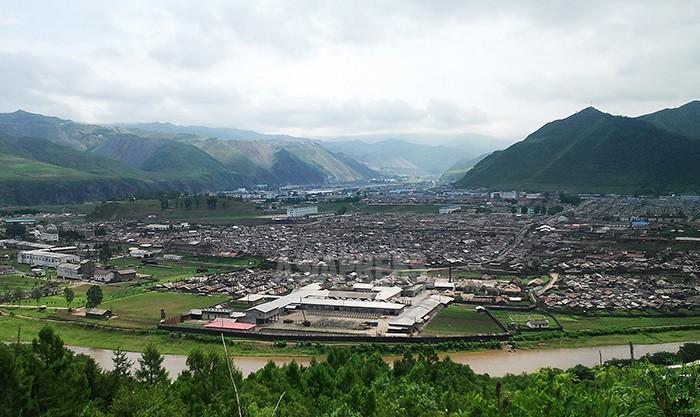
◆ Some workers can’t go to work due to malnutrition
Musan County in North Hamgyung Province is an iron mining region located on the China-North Korea border and is home to an estimated 100,000 people. ASIAPRESS heard from a reporting partner (“A”) in the area about the situation on the ground:
―― What is the situation like at Musan Mine nowadays?
A: There are workers who can’t go to work due to malnutrition. Workers received only six kilograms of corn in April, and that was just for workers themselves (excluding family members). The government is saying that wartime rations will be used to distribute food until food aid is sent from China in mid-May, but (as of May 16) this food aid is nowhere to be seen. Even if the food aid does come, each worker is entitled to only around five kilograms (of corn), so (the food aid) won’t do much good.
※ Musan Mine is North Korea’s largest iron ore mine and has an estimated workforce of 10,000 people. The mine has departments devoted to logistics, mining, and smelting, and each workplace may provide different levels of rations to its employees.
―― What are the authorities providing to workers?
A: Musan Mine authorities had severely been cracking down on people who have skipped work for extended periods, but workers’ lives have gotten so difficult that the authorities now allow workers to take rest period to go and buy food or to take on jobs outside of their regular work. The Central Committee of the Workers’ Party of Korea, for its part, has sent work uniforms to show support to the miners, and there was talk of it sending seafood as well, but nothing has arrived yet.
※ Starting in around 2020, the Kim Jong-un regime began severely cracking down on workers taking on wage labor outside of their assigned workplaces. The authorities have now made an about-face on the issue, loosening restrictions enough to allow people to acquire their own food and earn money outside of their assigned workplace on a temporary basis.
◆ Urban dwellers come to rural areas to beg for food
―― We’ve heard that people living in cities are living difficult lives.
A: I have a relative living in a nearby farming village who told me that “everyone, from the young to the old, is coming from the cities to borrow or beg for food 4-5 times a day.” People are coming to farming areas because there’s no food (they can afford) in the cities.
―― We’ve heard that there’s been a rise in deaths in provincial cities. What’s the situation in Musan?
A: In May, there’s been a lot of people dying. In my neighborhood, there were four people who died in April, along with two others who are about to die. All of them suffered from preexisting conditions like tuberculosis, hepatis, and asthma, and maybe eat just one meal a day. No one can get their own food, so they’re just waiting for the government to give it to them.
―― Is the government saying that they died of starvation?
A: No, they don’t say that they died of starvation, just that they died of disease. There are people who are unhappy that the government is hiding the fact that they died of starvation.
―― Is the government supporting people facing poverty?
A: Party organizations are ordering that measures be taken to help poverty-stricken people, but there’s no food available to make the measures effective. A work unit leader I know is going to wealthy households to borrow money and food, saying that he will pay them back after food aid comes from China. He is handing out this food and money to poverty-stricken households.
(to be continued in the next installment 3 >>)
※ A “work unit leader” is someone who heads a workplace or neighborhood watch unit.
※ ASIAPRESS communicates with reporting partners through Chinese cell phones smuggled into North Korea.
- The Pyongyang Cultural Language Protection Act calls for execution of violators in a bid to eliminate South Korean style speech from the DPRK
- <Inside N. Korea>Violent young people form brotherhoods, causing fights to break out between different gangs…The authorities crackdown on young people who try to earn money outside of their assigned workplaces
- <Investigation> The authorities start crackdowns based on the Pyongyang Cultural Language Protection Act (2) “People using South Korean style speech are being arrested”…ASIAPRESS asks its reporting partners about the crackdown
- <Investigation>Increase in wandering homeless people throughout North Korea…poverty-stricken elderly people and children forced out into the streets, with some even dying…The authorities order thorough measures to be taken
- <Investigation> The authorities start crackdowns based on the Pyongyang Cultural Language Protection Act (1)… “Eliminate South Korean speech, dialects, and loanwords”… The maximum punishment is execution

![<Inside N. Korea> The Deteriorating Plight of the People (1) Residents Impoverished by Excessive Coronavirus Quarantine Measures [ISHIMARU Jiro]](https://www.asiapress.org/rimjin-gang/wp-content/uploads/2021/07/202107-dandong-04_logo-150x150.jpeg)

